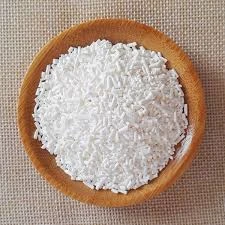
Exploring the Role of Polar Organic Solvents in Chemical Reactions and Applications
The Role of Polar Organic Solvents in Chemistry
Polar organic solvents are a crucial component in the field of chemistry, playing a significant role in various applications ranging from industrial processes to laboratory experiments. These solvents possess unique properties that allow them to dissolve a range of polar and ionic compounds, facilitating chemical reactions and extractions that would otherwise be challenging or impossible. This article delves into the characteristics, applications, and environmental considerations associated with polar organic solvents.
Characteristics of Polar Organic Solvents
Polar organic solvents are characterized by their molecular structure, which includes a significant difference in electronegativity between the atoms involved. This leads to a distribution of charge within the molecule, resulting in a dipole moment. Common examples of polar organic solvents include methanol, ethanol, acetone, and dimethyl sulfoxide (DMSO). These solvents are typically miscible with water, allowing for versatile use in aqueous and non-aqueous environments.
One of the key attributes of polar organic solvents is their ability to stabilize ions and polar molecules
. This is particularly important in various chemical reactions, such as nucleophilic substitutions and electrophilic additions, where the solvent can significantly influence the reaction mechanism and outcome. The dielectric constant of these solvents—a measure of their ability to reduce the electrostatic interactions between charged species—often determines their effectiveness in facilitating chemical processes.Applications in Industry and Research
Polar organic solvents are widely used across numerous industries, including pharmaceuticals, agrochemicals, and materials science. In pharmaceuticals, for instance, they are vital in processes such as drug formulation and extraction of active ingredients. The use of polar solvents allows for better solubility of polar pharmaceutical compounds, enhancing bioavailability and efficacy in medicinal applications.
polar organic solvents

In the realm of materials science, polar organic solvents are instrumental in the synthesis and processing of polymers and other materials. They serve as mediums for polymerization reactions and can aid in the dissolution and dispersion of additives and fillers, influencing the properties of the final product. Additionally, in analytical chemistry, polar organic solvents are extensively used in chromatography and spectrophotometry, where their solvent characteristics can impact the separation and detection of compounds.
Environmental Considerations
While polar organic solvents are invaluable in many applications, their environmental impact cannot be overlooked. Many traditional solvents pose challenges due to their toxicity and potential for environmental contamination. For instance, the use of solvents like benzene and chloroform has been limited due to their harmful effects on human health and ecosystems.
In recent years, there has been a concerted effort within the scientific community to develop greener alternatives. This includes the exploration of bio-based solvents derived from renewable resources, as well as the adoption of solvent-free or low-solvent techniques in chemical synthesis. Additionally, the implementation of solvent recovery and recycling processes has gained traction, aiming to minimize waste and promote sustainability in industrial practices.
Conclusion
Polar organic solvents are indispensable tools in modern chemistry, with applications spanning various sectors and disciplines. Their unique properties enable researchers and industrialists to develop and implement chemical processes effectively. However, as the focus on environmental sustainability continues to grow, the chemistry community faces the challenge of balancing the efficacy of polar organic solvents with their environmental and health implications. By investing in research for safer alternatives and adopting sustainable practices, the chemistry field can harness the benefits of polar organic solvents while mitigating their drawbacks. As innovation in this area progresses, the future holds promise for greener and more sustainable chemical processes.
-
Aluminum Hydroxide: Quality Gels & Dried Gel AntacidNewsAug.31,2025
-
Buy High-Quality Trichloroisocyanuric Acid for Sale | TCCA 90% SupplierNewsAug.30,2025
-
Pure Sodium Dichloroisocyanurate Dihydrate | Powerful DisinfectantNewsAug.29,2025
-
Industrial Chemicals: Quality & Purity for Every IndustryNewsAug.28,2025
-
Nitrile Rubber Honoring Strict Production StandardsNewsAug.22,2025
-
Aspartame Ingredients Honoring Food Safety ValuesNewsAug.22,2025
-
Fertilizer for Balanced Plant NutritionNewsAug.22,2025
Hebei Tenger Chemical Technology Co., Ltd. focuses on the chemical industry and is committed to the export service of chemical raw materials.
-

view more DiethanolisopropanolamineIn the ever-growing field of chemical solutions, diethanolisopropanolamine (DEIPA) stands out as a versatile and important compound. Due to its unique chemical structure and properties, DEIPA is of interest to various industries including construction, personal care, and agriculture. -

view more TriisopropanolamineTriisopropanolamine (TIPA) alkanol amine substance, is a kind of alcohol amine compound with amino and alcohol hydroxyl, and because of its molecules contains both amino and hydroxyl. -

view more Tetramethyl Thiuram DisulfideTetramethyl thiuram disulfide, also known as TMTD, is a white to light-yellow powder with a distinct sulfur-like odor. It is soluble in organic solvents such as benzene, acetone, and ethyl acetate, making it highly versatile for use in different formulations. TMTD is known for its excellent vulcanization acceleration properties, which makes it a key ingredient in the production of rubber products. Additionally, it acts as an effective fungicide and bactericide, making it valuable in agricultural applications. Its high purity and stability ensure consistent performance, making it a preferred choice for manufacturers across various industries.





